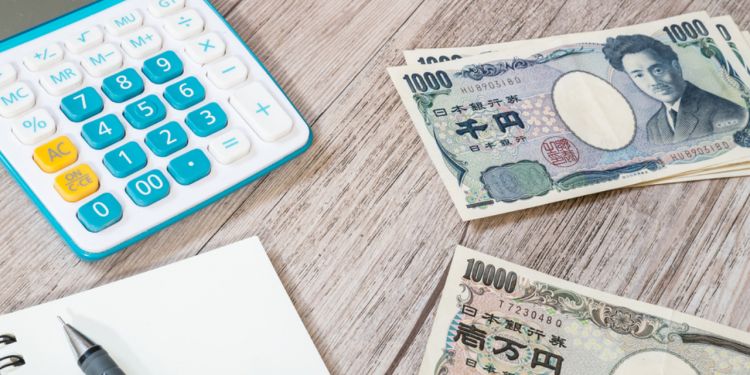Taxation in Japan

If you are an expat in Japan, you may be wondering whether you are a resident or not and whether you need to pay income tax or not. You may have started a business and are unsure about its status, the amount of tax to pay, or how to file a tax return. What are the main principles of the Japanese tax system? What are the taxable incomes? How to ensure the proper management of your assets? Here is an overview of the Japanese tax system to answer your questions.
Overview of taxes in Japan
Expats who earn income within Japan or those who have a registered address in Japan are required to pay taxes:
- Individuals who earn income within Japan are subject to individual income tax as a general rule;
- Individuals with a registered address in Japan are also subject to Individual Inhabitant Taxes. The amount of this tax varies based on the individual's income in the previous year.
Additionally, consumption tax is imposed on various goods and services, such as hotel stays and restaurant meals.
Japanese taxes include national and local taxes, depending on the recipient of the tax payment. Taxes paid to the national government, such as Individual Income Tax, are national taxes. On the other hand, taxes paid to the prefectural or municipal government, such as individual inhabitant taxes, are known as local taxes.
Individual income tax in Japan
How to calculate individual income tax
Individual Income Tax is a tax that is applied to your personal income in a year, from January 1 to December 31. You can also calculate your income tax in the following steps:
- Step 1: Gross income − Expenses, etc. = Net income (A);
- Step 2: Net income (A) − Deductions (see below) = Taxable income (B);
- Step 3: Taxable income (B) × tax rate.
The tax rate gradually rises along with increased taxable income (B).
Scope of individual income tax
The scope of individual income tax varies based on different types of residence:
- Residents: Those with a registered address in Japan or who have resided there for over a year are residents in Japan. All income residents earn inside and outside Japan is subject to income tax;
- Non-permanent residents: Those who fall under the category of residents but have not been in Japan for more than five years within the past ten years and do not hold Japanese nationality are non-permanent residents.
For non-permanent residents, both incomes earned outside and inside Japan are subject to taxation. Income earned outside of Japan is subject to income tax if it is paid within Japan or remitted to Japan;
- Non-residents: Those who do not qualify as residents are non-residents. Only the income they earn from work within Japan, such as salary, wages, and other work-related payments, is subject to income tax.
Tax return and payment
If you receive salaries and wages, you are not required to file a tax return in most cases. This is because your taxes are automatically deducted from your income and adjusted in your final salary payment for the year. However, there are certain situations where filing a tax return is necessary.
So, who must file a tax return?
- Individuals with a single employer earn over 200,000 yen from non-salary and non-severance pay sources;
- Individuals with multiple employers who earn over 200,000 yen from non-salary and non-severance pay sources without adjustments in their final salary;
- Individuals with income from business or stock trading must pay income tax based on their calculations.
You must pay the total amount by the specified due date if any tax is owed. The tax office will not send any notifications regarding this issue.
You can pay taxes in various methods, including automatic account transfer from a domestic bank account, online payment such as Internet banking or with a credit card, or over-the-counter payment using a tax payment slip at banks, post offices, convenience stores, or tax offices.
If you are eligible for a deduction from your withheld tax, you can get a refund of the tax you have paid too much by filing a tax return. The refund will be sent to your post office or bank account.
Tax pay before leaving Japan
When you leave Japan and cancel your Japanese address, your income tax will be adjusted in your final salary for the year while you are still in Japan.
Make sure to pay any tax you owe before leaving Japan. If you need to handle any tax-related procedures after leaving Japan, it'd be better to appoint a tax agent who lives in Japan to take care of the necessary procedures on your behalf.
Tax deduction
You can apply deductions to your income tax calculation if you meet specific criteria. Generally, you can get a tax deduction in the following cases:
- When you provide financial support to a family member whose total income is 480,000 yen or less;
- When you pay social insurance (Health insurance, National Pension, Employee's pension insurance, etc.) for yourself, your spouse, and other family members who depend on you for their livelihood;
- When you pay a certain amount of life insurance premiums, long-term medical care insurance premiums, and/or pension insurance premiums;
- When you have spent a significant amount on medical expenses.
Good to know:
The tax is adjusted at the end of the year in the final salary or wage through a process known as year-end adjustment. Employers will provide a withholding record that includes the annual gross salary as part of this process.
If your country has an income tax convention with Japan, you may qualify for tax relief by meeting specific requirements.
For more details, refer to the official website of the Ministry of Finance Japan (source: https://www.mof.go.jp/english/policy/tax_policy/publication/tax013/e_03.pdf).
Individual Inhabitant Taxes in Japan
Individual Inhabitant Taxes are mandatory taxes paid to the prefectural and municipal offices based on your address as of January 1st. These taxes comprise two components: an income-graded component, calculated based on your income from the previous year, and a flat-rate component, which remains the same regardless of your income level. The individual inhabitant taxes for your prefecture will be paid to your municipal government and the taxes for your specific municipality.
If you receive a tax demand from your local government, you must visit the government office and pay the indicated amount personally. You can pay your taxes at the post office or a convenience store as instructed in the letter from your local government.
Alternatively, your employer can deduct the taxes from your salary and remit it to the municipal government on your behalf.
You must pay your taxes to the municipality where you were registered on January 1st, even if you leave Japan on January 2nd or later. If you can't pay your Individual Inhabitant Taxes before leaving Japan, you must find someone in Japan to pay the tax for you and inform the municipal office about it.
Consumption Tax in Japan
The Consumption Tax in Japan is 10% for most goods and services. However, the tax rate is reduced to 8% for food and non-alcoholic drinks. Only tourists are sometimes exempted from tax when they make purchases in duty-free shops.
Foreign companies conduct business in Japan without having a physical presence, except for warehouses, thus distributing goods in Japan may be considered to have a permanent establishment. As a result, these companies may be liable for both direct and indirect taxes, such as the Consumption Tax.
In such cases, a foreign non-resident company will need to designate a Japanese tax agent. This tax agent will handle all communication between the company and the Japanese tax administration.
Good to know:
In Japan, prices displayed in large print are prices before tax. Tax-inclusive prices are shown in small print.
Reduced rates of 8% apply to food and beverages (excluding alcohol and restaurant meals) and subscriptions to general newspapers (published at least twice a week, dealing with politics, economy, society, and culture).
Tax exemptions apply to bank interest, insurance, social welfare, land sales and rentals, and educational services.
Other consumption taxes include gasoline, alcohol, tobacco, and imported goods (customs & duty).
Automobile Tax in Japan
When buying a car or a small car in Japan, you must pay Automobile or Light Motor Vehicle Tax. This tax can be reduced based on the environmental performance of the vehicle. The reduction amount is determined by factors such as fuel efficiency. The tax on your vehicle's weight is applied during the inspection.
For more details, check the official website of the Ministry of Land, Infrastructure, Transport and Tourism.
Property Tax and City Planning Tax in Japan
If you own property in Japan, such as land, buildings, or depreciable assets for your business, such as machines and equipment, you are required to pay this tax to the municipality in the location of your asset.
The standard tax rate is 1.4%, but municipal governments designate a tax rate by regulations.
You must pay property tax as of January 1 each year. It is necessary to declare the depreciable assets you possess. The municipal office will calculate the amount to be paid based on the values of your assets.
There is also a real property registration tax paid by corporations and individuals who have registered their ownership rights for land or buildings with the national government. Furthermore, corporations and individuals who have obtained land or a building must pay the prefecture a real property acquisition tax.
Also, if you have land and houses, you must pay city planning tax to the municipality. This tax is for funding city planning and land readjustment projects. The tax rate is 0.3% of the value of your property.
Corporate Income Taxes in Japan
In Japan, corporations are subject to various taxes on their income, including corporate tax, local corporate tax, corporate inhabitant tax, enterprise tax, and special corporate enterprise tax.
The scope of income subject to corporate inhabitant tax and enterprise tax is determined based on the provisions for corporate tax.
Corporate inhabitant taxes are also levied based on the corporation's capital and the number of its employees.
Corporations with paid-in capital exceeding 100 million yen are subject to enterprise tax. The tax rates for these corporate taxes may vary depending on the business scale and the local government.
Additionally, other corporate taxes, including reserves for retirement pensions, will be suspended after March 31, 2026.
For details, you should refer to the National Tax Agency website.
The different types of companies in Japan
There are two main categories of companies in Japan:
- Local structures: limited liability companies (godo kaisha), free zone companies, joint stock companies (kabushiki kaisha), and limited liability partnerships;
- Foreign structures: Japanese branches and Japanese representative offices.
The corporate income tax rates for small and medium-sized enterprises (SMEs) for the business year from April 1, 2021, to March 31, 2025, are as follows: 22.40% for SMEs with income up to 4 million yen, 24.86% for SMEs with income over 4 million yen to 8 million yen, and 36.80% for SMEs with income over 8 million yen. These rates include various taxes such as corporate tax, local corporate tax, prefectural and municipal corporate inhabitant taxes, enterprise tax, and special corporate enterprise tax (source: https://www.jetro.go.jp/en/invest/setting_up/section3/page3.html).
Other taxes in Japan
Reconstruction assistance surtax
Following the 2011 Tohoku earthquake, a special surtax for reconstruction assistance was voted. It corresponds to 2.1% of the income tax. It has been in force since 2013 and is scheduled to last until 2037.
Taxes on gifts and inheritances
You are subject to a gift tax if you receive properties as gifts. However, if a corporation or company donates the properties, income tax is imposed instead of gift tax.
Additionally, suppose you receive the proceeds from a life insurance policy you didn't pay the premium for or receive a benefit due to debt exemption. In that case, you will be considered to have received a gift and, therefore, be liable for gift tax.
On the other hand, if the deceased person paid the proceeds from a life insurance policy as the insured individual, you will be subject to inheritance tax rather than gift tax.
The gift tax is applicable once the total value of properties donated in a year, from January 1 to December 31, exceeds 1.1 million yen. However, if the total value of properties donated is less than 1.1 million yen, there is no need to file a return for gift tax.
There are two methods for calculating gift tax: the calendar year taxation system and the settlement taxation system at the time of inheritance. If specific requirements are met, you can choose the settlement taxation system at the time of inheritance.
Inheritance tax is imposed on the excess amount if the total value of inherited or bequeathed properties and properties acquired through settlement taxation at the time of inheritance exceeds the basic exemption amount.
The excess amount is calculated by subtracting the amount of debt and adding the value of properties donated within 7 years before the inheritance, according to tax reform in FY2023.
You should file a payment declaration of inheritance tax within 10 months following the notification of the decedent's death.
Tax treaties in Japan
As of January 1, 2024, Japan has signed tax treaties applicable to 154 jurisdictions, with 85 conventions, to prevent double taxation on the same income. Japan also offers tax reduction or exemption measures for different types of income generated within its borders. These measures help in avoiding international double taxation to a large extent.
The provisions of these tax treaties take precedence over domestic laws. Suppose you or your corporation is domiciled in a country that has a tax treaty with Japan. In that case, the taxable income generated from the source of income may be adjusted according to the treaty's provisions. This adjustment can be made either from Japan to the counterpart country or vice versa.
Some highlights of Tax Reform in 2024 (proposals)
Individual income tax and inhabitant tax
- Individual income tax and inhabitant tax will be reduced by JPY30 thousand and JPY10 thousand per person, respectively. Spouses and dependent relatives can also benefit from this deduction, but income limitations will exist;
- The exemption for dependents aged 16 to 18 will be reduced (national tax: 380,000 yen → 250,000 yen, local tax: 330,000 yen → 120,000 yen), while overall support will be expanded through the expansion of child allowance. Single parents will benefit from an increase in the number of exemptions and relaxed income requirements;
- The borrowing limit for the housing loan tax credit, which was supposed to decrease, will be maintained for young married couples and families with children;
- Under certain conditions, the exercise price eligible for tax incentives and offered by the stock option rules will be increased from JPY12 million to JPY36 million.
Consumption tax
- Implement a "Platform Taxation" policy that levies consumption tax on digital platform operators if the transaction value with foreign suppliers exceeds 5 billion yen per taxable period.
- Modify the tax-free system for foreign tourists to combat fraudulent resale by making the exemption from consumption tax contingent upon verifying the tax-free goods purchased from Japan.
Tax incentives to promote wage increases
- Large enterprises that raise wages by at least 7% compared to the previous year will receive a corporate tax credit equal to 25% of the increase.
- Companies promoting women's initiatives or offering childcare support will be eligible for an extra tax credit if they meet specific requirements.
- The maximum credit rate for large enterprises and medium-sized companies will be set at 35%. Small and medium-sized enterprises (SMEs) will see an increase in their credit rate to 45%.
- If a company cannot utilize the credits due to losses, they can carry them forward for up to five years.
Tax and social security contributions in Japan
With a compulsory public burden ratio (social contributions and taxes) of 48.1% in 2021 and estimated to be 46.8% in 2023, the tax pressure weighs on residents in Japan. The bill rises quickly for both foreign and Japanese taxpayers. If you receive a salary of one million yen (about 6250 euros), you must pay nearly 3000 euros in taxes and contributions. Only about 3250 euros of income will remain.
It's a hefty bill, but it is an efficient social security system. Indeed, healthcare in Japan is accessible to everyone and renowned for its quality. However, the aging population presents the country with an additional challenge. Guaranteeing access to healthcare while allowing them to benefit from quality of life isn't an easy task. COVID has only increased the pressure on the Japanese healthcare system and the government.
Taxes in Japan: additional tips
Take the time to plan your move to Japan by seeking all information relevant to Japanese tax laws and regulations and those of your home country. Make sure you are aware of your resident status. What made you move to Japan? Are you looking to start a business or work in Japan? Or are you looking to study in Japan? Find out about Japanese taxation, especially if you have assets.
Useful links:









